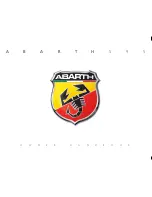
7-3. Do-It-Yourself Maintenance
Tire pressure
329
7
M
ain
ten
an
ce
Be sure to maintain proper pressure in the tires. Check the tire pressure once per month at least.
A tire pressure label is attached under the B-pillar lock of
driver side.
■
Consequences of incorrect tire pressure
Tire pressure too low:
Rolling resistance increases. Fuel consumption increases.
Reduced vehicle handling and stability.
It may cause damage and high temperature, resulting in a flat tire. When the tire pressure is seriously
insufficient, it may cause the tire to detach from the rim, reducing safety.
Causes uneven wear on both sides of the tire.
Tire pressure too high:
As a result, vehicle comfort is reduced.
Cause excessive wear in the middle of the tire.
Excessive tire pressure can easily cause internal cracks or punctures when the tire is impacted.
■
Tire Pressure Test Guide
Check tire pressure timely even if your vehicle is equipped with a tire pressure monitoring system that can
promptly alert you of tire pressure conditions.
Follow the following precautions for checking tire pressure:
Carry out the check after the tires are cooled down.
If the vehicle has been parked for at least 3 hours, or has not traveled more than 1.5 km, the inspection can
obtain accurate tire pressure readings.
Make sure to use the tire pressure gauge.
The appearance of the tire may sometimes be misleading. In addition, even if it is slightly underinflated, the
tire may reduce running smoothness and handling stability.
Do not deflate or decompress the tires after driving. Increased tire pressure is normal after driving.
Do not overload the car.
The occupant and baggage weights should be evenly distributed to balance the vehicle.
Summary of Contents for HS5
Page 2: ......
Page 24: ...22 ...
Page 74: ...2 Instrument Cluster 72 ...
Page 378: ...8 2 Measures to Be Taken in Emergencies 376 ...
Page 379: ...377 9 Specifications Maintenance data 378 Fuel information 390 Vehicle specification 9 ...
Page 395: ...393 List of Abbreviations 394 Other information ...
















































